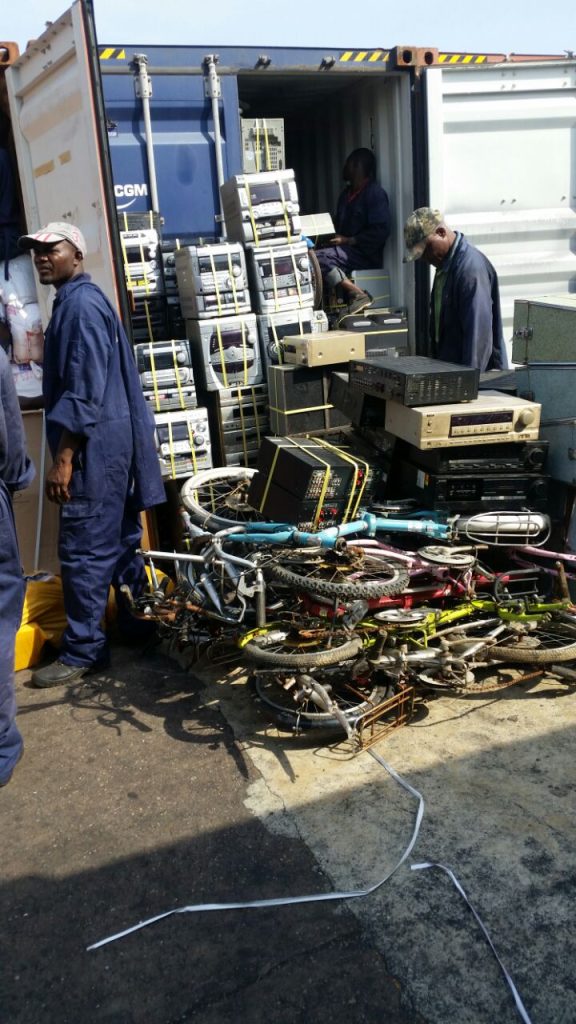Nigeria receives over 500,000 containers of e-waste monthly exposing citizens to health risks such as DNA damage, cancer and cardiovascular diseases, the International Telecommunications Union (ITU), has warned while calling attention to the growth in residues from consumer technologies.
The volume of e-waste coming into Nigeria is one of the key highlights of a report released by the ITU, the UN specialised agency for the global information and communication technology industry, which has also expressed concern about the amount of electronic waste being generated from used devices and consumer technology products across the globe.
According to the UN’s fourth Global e-Waste Monitor reports, the amount of electronic waste generated worldwide is increasing at a rate five times faster than the amount of e-waste being recycled.

According to the report, Nigeria receives over 500,000 containers of e-waste per month, exposing its citizens to health risks such as DNA damage, cancer, and cardiovascular diseases.
ITU.
In 2022 alone, 62 million tonnes of e-waste were produced, which is equivalent to 1.55 million 40-tonne trucks. If these trucks were lined up, they would form a bumper-to-bumper circle around the equator. Unfortunately, only 22.3% of the waste generated in that year was properly collected and recycled.
According to the report, Nigeria receives over 500,000 containers of e-waste per month, exposing its citizens to health risks such as DNA damage, cancer, and cardiovascular diseases.
The amount of electronic waste from devices and consumer technology products such as computers, mobile phones, and televisions will rise on a global scale, ITU, the UN specialised agency for the global information and communication technology industry, has predicted.
According to recent media reports, even though most of these gadgets are not manufactured in Africa, they often end up being dumped in the continent that has become a major dumping ground for such toxic waste.
ITU has warned that the waste generated by discarded electronic devices can pose a health and environmental hazard. These devices contain toxic additives and hazardous substances such as mercury, which can cause damage to the human brain and coordination system.
Cosmas Luckyson Zavazava, Director of ITU Telecommunication Development Bureau, explained that “from discarded televisions to dumped telephones, an enormous amount of e-waste is generated around the world. With less than half of the world implementing and enforcing approaches to manage the problem, this raises the alarm for sound regulations to boost collection and recycling.”
ITU, recently released UN’s fourth Global e-waste monitor, which stated: “Discarded wastes from these devices constitute a health and environmental hazard as they contain toxic additives or hazardous substances such as mercury, which can damage the human brain and coordination system.”
Commenting on the findings of UN’s fourth Global e-waste Monitor, Nikhil Seth, Executive Director of the United Nations Institute for Training and Research, said that, “amidst the hopeful embrace of solar panels and electronic equipment to combat the climate crises and drive digital progress, the surge in e-waste requires urgent attention.”
Zavazava added that “with less than half of the world implementing enforcing approaches to manage the problem, this raises the alarm for sound regulations to boast collection and recycling.”
Source of Article
